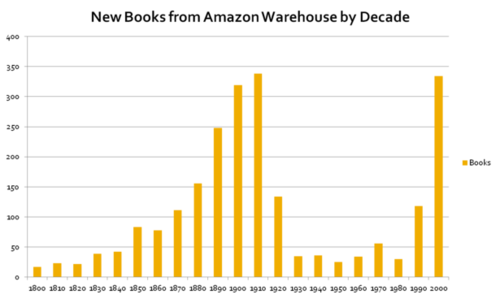The technology I like is the American paperback edition of Freedom. I can spill water on it and it would still work! So it's pretty good technology. And what's more, it will work great 10 years from now. So no wonder the capitalists hate it. It's a bad business model," said Franzen, who famously cuts off all connection to the internet when he is writing.
"I think, for serious readers, a sense of permanence has always been part of the experience. Everything else in your life is fluid, but here is this text that doesn't change.
"Will there still be readers 50 years from now who feel that way? Who have that hunger for something permanent and unalterable? I don't have a crystal ball.
"But I do fear that it's going to be very hard to make the world work if there's no permanence like that. That kind of radical contingency is not compatible with a system of justice or responsible self-government."
(The Telegraph | Jonathan Franzen: e-books are damaging society)
What absolute piffle. He starts out heading in a fruitful direction when he talks about the economics of ebooks. They're definitely a threat to the commons and especially to libraries, because they're a remote-controllable and license-able medium. When you buy a paper book, you own it free and clear and the law is clear on your rights for lending, reselling and reuse. Not so with e-books, and if we don't get it in hand, public libraries will be renting their whole collection on onerous and restrictive terms, the same way academic libraries have to now with journals.
So, that's a big advantage to paper, but that's not really what he's on about, because he's not really worried about democracy or civil society or the commons. Just like with Stanley Fish awhile back, what he's really concerned about is authorial identity and authority. Funny how the "radical contingency" of electronic media tends to freak out privileged white dudes sitting at the top of their fields more than anyone else.
This ain't about democracy. Democracy will be just fine, except for the whole rapacious global capitalism issue, but more authority and stability for the current crop of elites sure won't help us on that front either.
Radical contingency, mutability, fluid and collaborative notions of authorship, and an interactive and fiercely contested intellectual and public sphere were all hallmarks of the print culture that spawned and nurtured early democratic polities. Electronic media are bringing back those conditions, albeit with the complicating issues of surveillance, control at a distance, and I.P. What he's really lamenting is the loss of broadcast culture, which privileges a few fortunate voices and denies the rest a chance to talk back or participate in culture creation.
Which, if this is the best those voices can come up with, good riddance.


